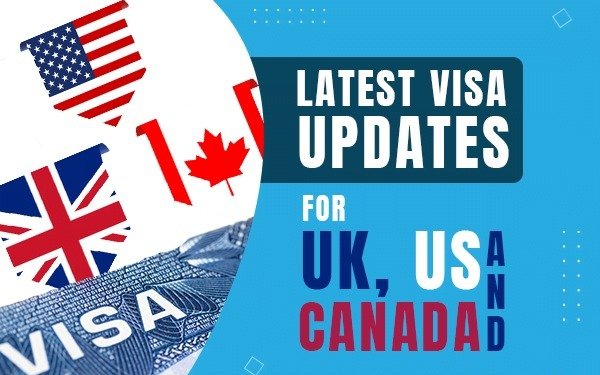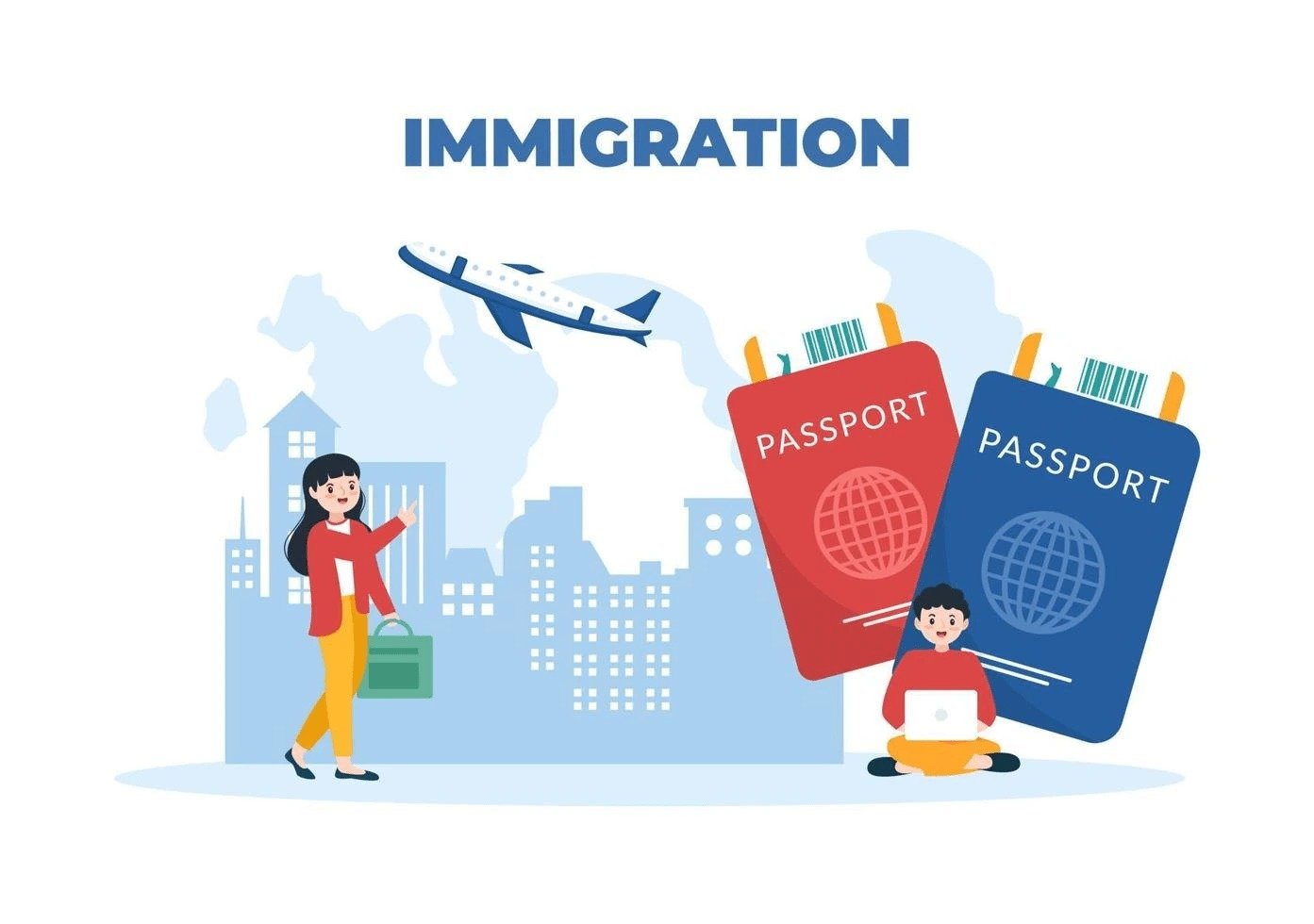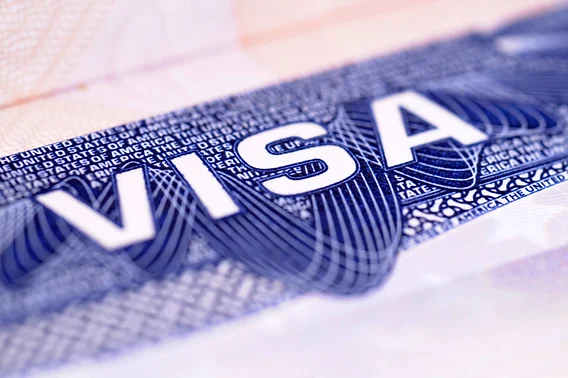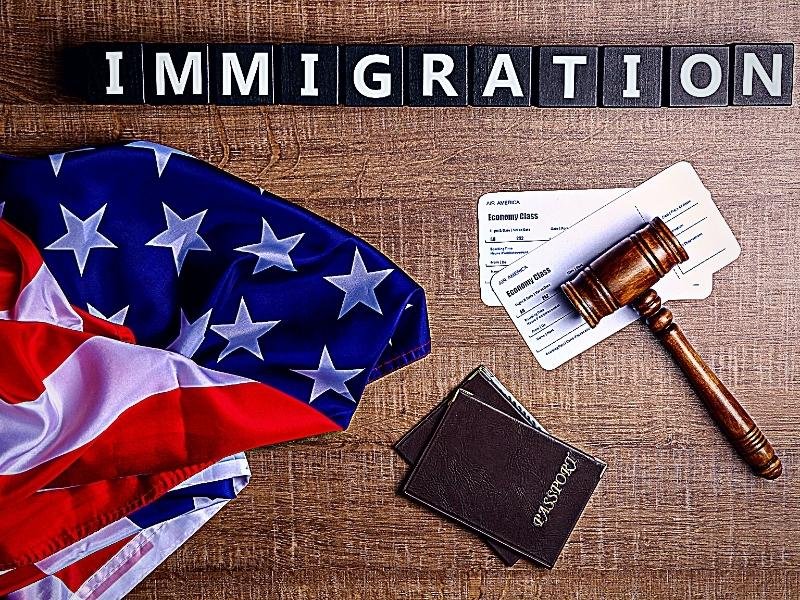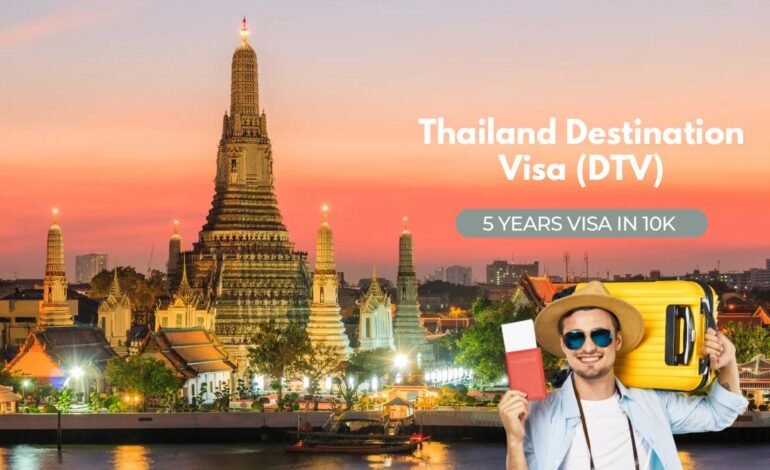
Ultimate Guide to the Thailand DTV Visa: Requirements, Process, and Tips for 2024
Inside this article :
What is Thailand Destination Visa or DTV Visa?
- What is Thailand DTV Visa?
- Who can apply for DTV Visa?
- Documents required for DTV Visa?
- How to Prepare Portfolio for Visa?
- DTV Visa validity and Fee?
- How to Apply DTV?
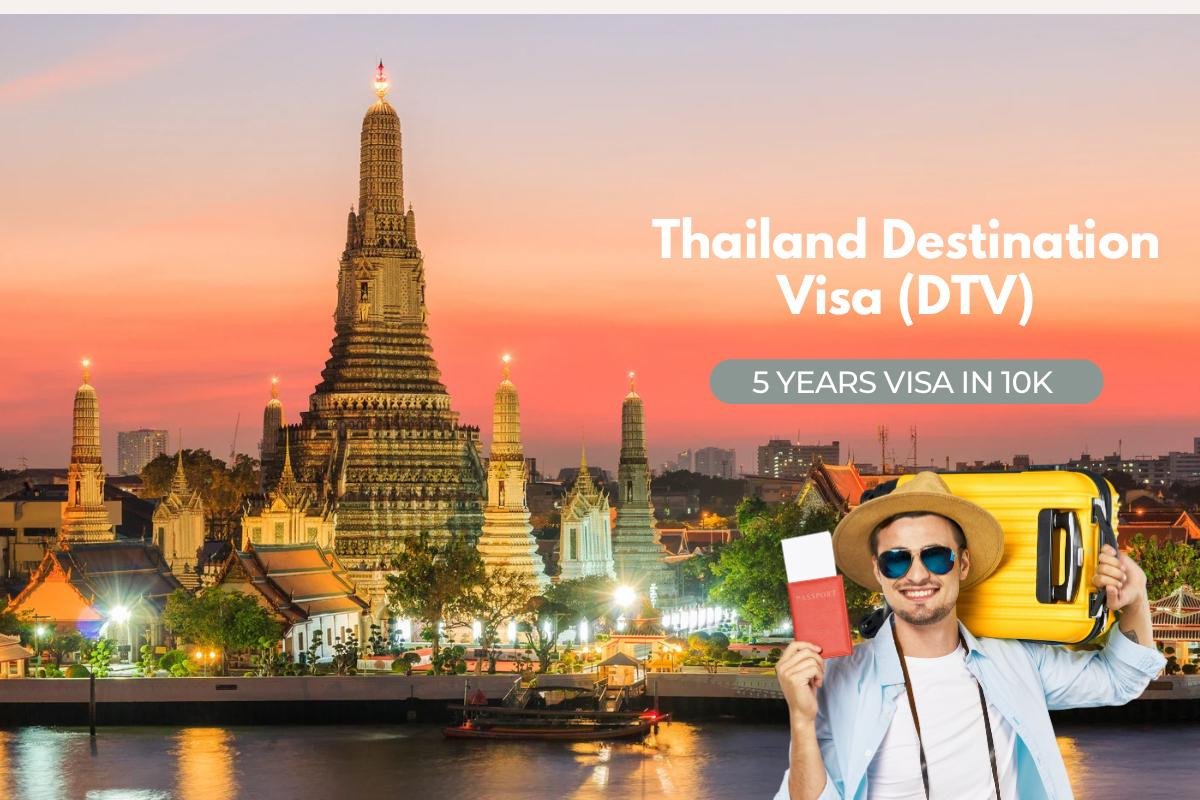
The Thailand Destination Visa (DTV), often referred to as the “digital nomad visa,” was announced by the Thai government as part of efforts to boost the economy and promote long-term tourism. It was introduced following a proposal from the Ministry of Foreign Affairs, and applications began in mid-July 2024. This visa caters to digital nomads, freelancers, and individuals interested in participating in cultural and educational activities in Thailand
The DTV visa allows for multiple entries and permits stays of up to 180 days per visit over a 5-year period. It also supports participants in cultural programs such as Muay Thai training, cooking classes, or even medical treatments.
DTV visa is part of a broader set of measures approved by the Cabinet in May 2024 to stimulate tourism and facilitate smoother visa processes for international visitors.
Thailand Destination Visa can be applied under 3 Categories:
- Workcation (digital nomad/remote worker/foreign talent/freelancer)
- Thai soft power related activities e.g. muay Thai, Thai culinary training and medical treatment
- Spouse and children under 20 years old of DTV visa holders
Documents Required for: Digital Nomad / Remote Worker /foreign talent / Freelancer
- Passport or Travel Document – Biodata page
- Photograph – taken within the last six months
- Document indicating current location – Your Country
- Financial evidence: amount of 500,000 THB, e.g. bank statements or sponsorship letter
- Employment contract or employment certificate in their country or professional portfolio showcasing digital nomad, remote worker, foreign talent or freelancer status
Documents Required for: Thai soft power related activities e.g. muay Thai, Thai culinary training and medical treatment
- Biodata page of Passport or Travel Document
- Photograph taken within the last six months
- Document indicating current location
- Financial evidence: amount of no less than 500,000 THB, e.g. bank statements, sponsorship letter
- Proof of confirmation to attend the activity or letter of appointment from hospital/medical centre
Documents Required for: Spouse and children under 20 years old of DTV visa holders
- Biodata page of Passport or Travel Document
- Photograph taken within the last six months
- Document indicating current location
- Financial evidence: amount of no less than 500,000 THB, e.g. bank statements, sponsorship letter
- DTV visa of the DTV holder
- Proof of relationship to the DTV visa holder, e.g. a copy of marriage certificate / birth certificate / certificate of adoption
How to Prepare for professional portfolio ?
If you are working for a company or client remotely, such as tech, writing, design, marketing, or consulting while travelling or living in different location you are eligible for this. Most of Tech worker have online job from home or different location they can apply for this visa.
They need to ready professional CV for this.
Professional Summary:
- A brief statement that highlights your skills, remote work experience, and adaptability. Mention your passion for travel and how it enhances your work.
- Employment Contract copy from company for remote worker or Freelancer
Skills Section:
- Technical Skills: Software and tools relevant to your field (e.g., programming languages, design software, project management tools).
- Remote Work Skills: Communication, time management, self-discipline, problem-solving, and adaptability.
- Language Skills: Any additional languages you speak, which can be beneficial in a global context.
Work Experience:
- List remote jobs and freelance projects, emphasizing achievements and contributions. Use bullet points to highlight specific results, projects completed, or skills gained.
- Include the location (if relevant) and note if the work was done remotely.
Freelance or Project Work:
- Detail any freelance projects or consulting work, including client names (if permissible) and outcomes of your work. This shows your versatility and ability to manage multiple clients.
Portfolio:
- If applicable, include a link to an online portfolio showcasing your work, such as writing samples, design projects, or completed coding tasks.
- You can mention your Linked In account or another Online freelance platform Ex. Fiver, Upwork etc. where the tech freelances get projects.
- Bank Transaction showing payment entries receiving form Clients or Platforms where you work.
Visa Fee and Validity
Visa Fee:
- The fee for the Thailand Digital Nomad Visa can vary depending on the specific type of visa and the processing location. Generally, the fee is around 10,000 THB (approximately $300 USD), but it’s advisable to check with the Thai embassy or consulate for the most current fees.
Validity and Visa fee of DTV Visa ?
- The Digital Destination Visa is valid for 5 years and usually allows for an initial stay of up 180 days. After this period, it may be possible to apply for an extension for more 180 days paying 10000 THB. or renewal, subject to certain conditions.
How to Apply for DTV Visa ?
Apply through official website https://www.thaievisa.go.th/ Sign up and complete form.
Commonly asked Questions :
How much Visa fee for Thailand Destination Visa or DTV Visa ?
Visa fee is 10000 THB.
Validity of Thailand Destination Visa or DTV Visa ?
Visa is valid for 5 years once approved.
How much bank balance required for Thailand Destination Visa ?
You have to prove minimum 500000 THB in your bank account.
Who can apply for DVT or Thailand Destination Visa ?
Digital nomad / Remote workers / Foreign talent / freelancer can apply for this visa.

